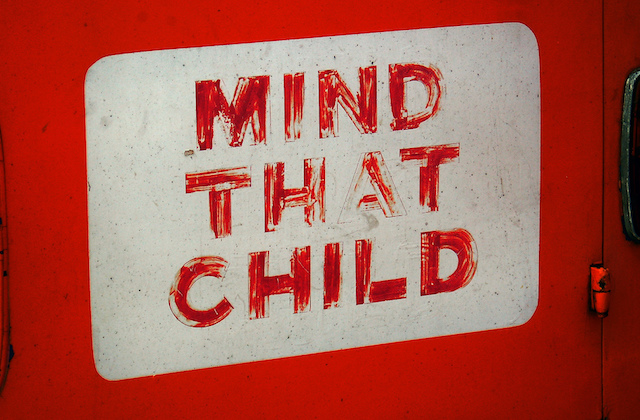An op-ed published by The New York Times today (March 14) breaks down what writer Jennifer Harvey thinks her fellow White parents can learn from Black and Latinx parents when it comes to talking to their children about racism.
Harvey begins “Are We Raising Racists?” by writing about why those talks are urgently needed right now.
For those of us raising children, the future couldn’t be more on our minds. With the news full of reports about vandalized Jewish cemeteries and mosques on fire, police officers who terrorize and endanger Black and Latino children, and engineers from India being shot while enjoying a meal after work, it’s tempting to shut off the radio, turn off the TV and cancel those news alerts on our cellphones. But it’s more critical than ever that we talk about difficult and morally complex issues with our children.
But she points out that many of those conversations employ a faulty strategy that can have tragic consequences:
Meanwhile, studies have long shown that generic messages about equality aren’t effective in countering such racial socialization. Right now, then, it’s even more urgent that parents who rely on messages like “we’re all equal” or “we’re all the same underneath our skin” in the hope of teaching our children the values of inclusion, equality and difference significantly up our game. And let’s be frank, it’s parents of White children, like myself, who tend to rely on these sincere, but ineffective, strategies.
The consequences are serious. When we don’t talk honestly with White children about racism, they become more likely to disbelieve or discount their peers when they report experiencing racism. “But we’re all equal” becomes a rote response that actually blocks white children from recognizing or taking seriously racism when they see it or hear about it. This is at best.
At worst, the consequences are akin to what happens when you breathe in polluted air. Not realizing the pollution is there doesn’t mean it doesn’t affect you. White children are exposed to racism daily. If we parents don’t point it out, show how it works and teach why it is false, over time our children are more likely to accept racist messages at face value. When they see racial inequality—when the only doctors or teachers they see are White, or fewer kids in accelerated classes are Black, for example—they won’t blame racism. Instead, they’ll blame people of color for somehow falling short.
She goes on to say that parents of color should be models for raising kids who not only acknowledge that racism is real, but advocate for equity.
Parents of Black and Latino children have long made thoughtful choices about when and how to engage in difficult and nuanced discussions about difference. Studies show that such parents are two to five times more likely than Whites to teach their children explicitly about race from very young ages to counter negative social messages and build a strong sense of identity….
Those of us who are not immigrants or Muslim and who are raising white children stand to learn much from parents like these, even as we apply the teachings differently for our particular families.
For example, I’ve tried to go beyond the abstract “be kind to everyone” to encourage my children to recognize racial meanness and understand that White kids have a particular responsibility to challenge racism. These are necessary skills when the racism emboldened by this administration shows up in the world.
Read the full essay here.
